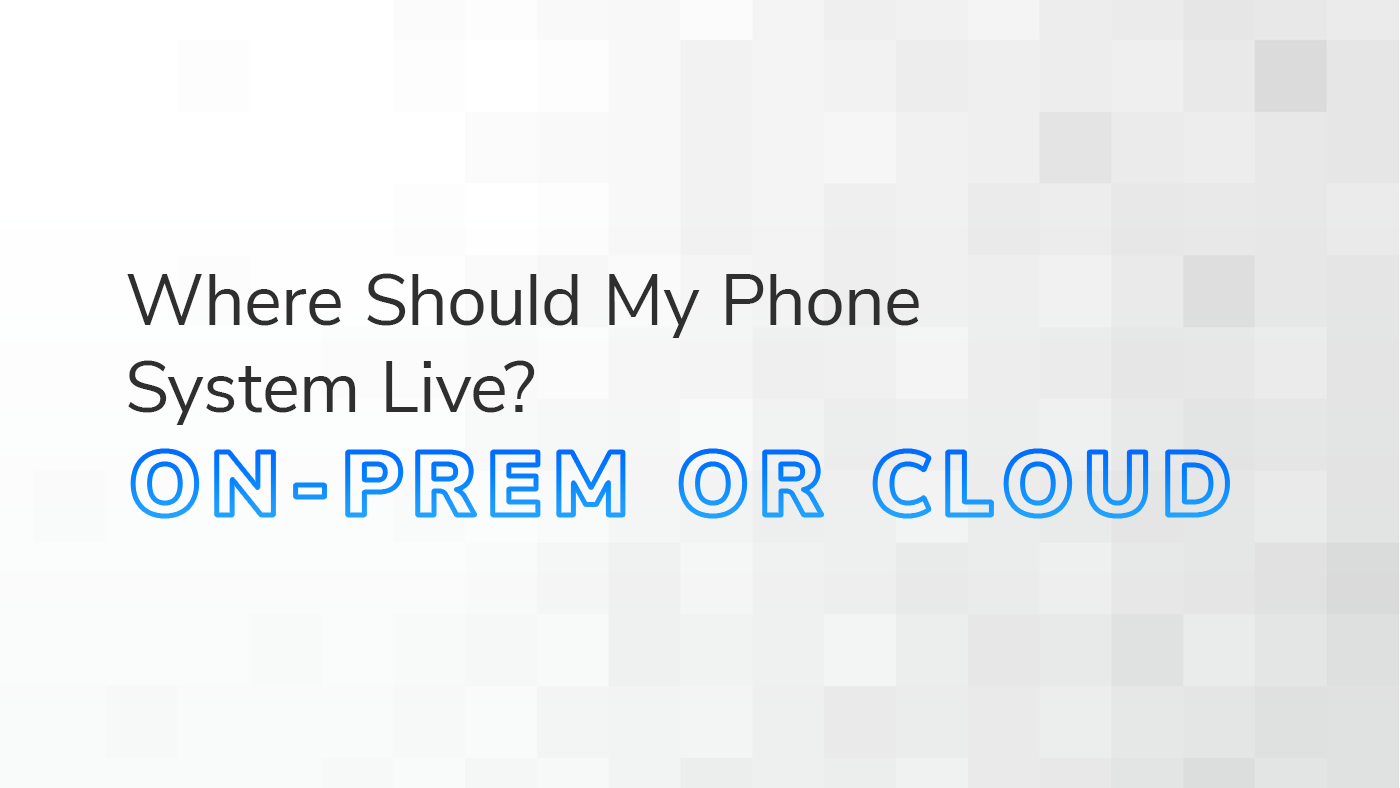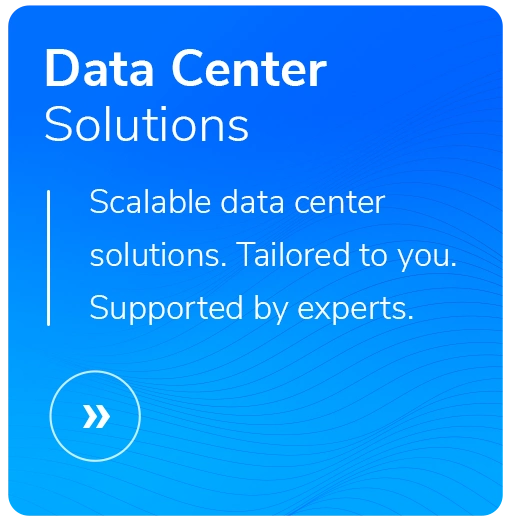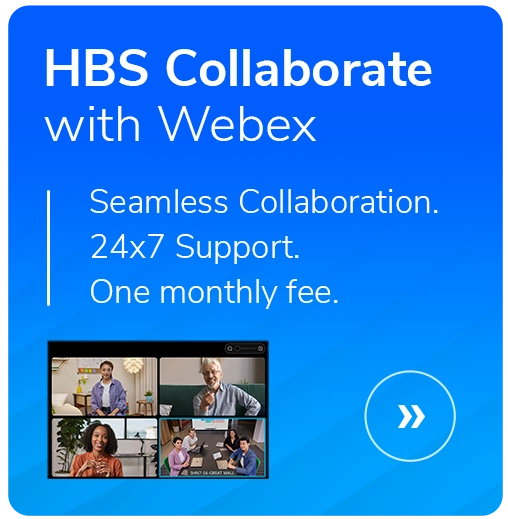Is It Time to Upgrade Your Business Phone System to the Cloud?
- Written by: Ryan Mosher

If you’re here, then you’re probably wondering if it’s time to make the jump to a cloud-based communication solution for your organization. Maybe it’s the need for flexibility, maybe it’s the desire for more robust features, or maybe your current phone system is starting to show its age.
Whatever the reason, you’re facing the choice of either moving to the cloud or upgrading your phone hardware.
Our aim is to help you in your decision process, giving you some key considerations to think about in order for you to make the best choice for your organization.
Signs You Probably Need an Upgrade
Here are some signs that it might be time for a communication system change:
- Call Quality Woes: Dropped calls becoming a regular occurrence, frequent static, choppy audio, and one-sided conversations are all signifiers that your equipment is most likely outdated or its capacity is overloaded.
- Feature Fatigue: It's 2024, and things like voicemail to email, video conferencing, and mobile integration are no longer luxuries; they’re business necessities. These features and others improve productivity and collaboration, while legacy phone systems are typically just a fancier string between two paper cups.
- Scaling Struggles: Adding new employees or phone lines shouldn’t be a logistical nightmare. Many analog and traditional VoIP systems make expansion difficult and expensive.
- Maintenance Mayhem: If your IT team is constantly battling with outdated hardware, that eats into valuable resources that could be spent focusing on growing your business instead of constantly maintaining a traditional phone system.
- Integration Issues: Many cloud-based communication systems can be integrated with other essential business tools like your CRM or project management software. The vast majority of legacy phone systems can’t say that.
- Limited Mobility: If 2020 showed us anything, it’s that employees want the flexibility to work from anywhere while staying productive, and not being tied to a desk phone is a big piece of the remote work puzzle.
Those are just some of the signposts that indicate a change should be on the horizon, but is it worth it?
Reasons to Move to the Cloud
Transitioning to a cloud-based communication system, like HBS Collaborate with Webex, isn’t just about replacing outdated hardware, it’s also about future-proofing your tenant, becoming more efficient, and improving organization connection.
Here are a few cloud phone system benefits:
- Cost Savings Powerhouse: 82% of businesses reported significant cost reductions after moving to the cloud. Cloud-based systems eliminate the need for expensive upfront hardware purchases and ongoing maintenance costs. You only pay for what you use, making it a budget-friendly option for businesses of all sizes.
- Future-Proof Flexibility: The cloud is built for scalability. With a cloud-based system, adding new lines, users, or features is a breeze. This allows your communication system to grow alongside your business, adapting to your changing needs without the hassle and expense of constantly upgrading hardware. Gartner predicts that by 2025, 85% of organizations will embrace a cloud-first principle, making cloud communication the standard for the future.
- Enhanced Security: Security concerns are a major consideration for any business. 94% of businesses actually saw an improvement in security after switching to the cloud. Cloud providers invest heavily in top-tier security infrastructure and maintain the latest encryption protocols, offering a more robust defense against cyber threats than many on-premise phone systems.
- Boosting Productivity: Cloud-based communication systems, also known as Unified Communications (UC), combine various communication channels (voice, video, chat) into a single, unified platform. This streamlines workflows and improves collaboration, allowing employees to find and connect with colleagues more easily. Studies show that UC solutions can save employees an average of 30 minutes per day, freeing up valuable time to focus on what matters most - growing your business.
Sometimes Waiting Really Is the Best Choice
At HBS, we’ve done thousands of phone system assessments, helping our clients through the decision, migration, and implementation processes. Every business is unique, and while a cloud-based communication system offers a multitude of benefits, it’s not always the best immediate choice.
Take an honest look at your environment. If you recently invested in a phone system, there’s a good chance it has a decent lifespan remaining.
If that’s the case, you should maximize your current investment but do so without sacrificing your future cloud migration plans.
As you make decisions while continuing to employ your current system, make sure you prioritize things like standardizing configurations, and exploring which features your organization would really benefit from with a new system.
Considerations
Whether you are still on the fence, or if you’re leaning one way or another, here are some key things to think about as you drive toward a decision, prepare for a transition, or stand pat with what you have:
- Current System Age & Functionality: How old is your current system? Are there features lacking that hinder your communication needs?
- Number of Users & Locations: How many people and offices need phone service, including any international locations?
- Scalability Needs: Does your business anticipate growth requiring additional users or features in the near future?
- Desired Features: What functionalities are essential for your communication (e.g., call recording, video conferencing)?
- Existing Investment: Have you recently invested in a new phone system? Would maximizing its lifespan be cost-effective?
- Cloud Readiness: Are you comfortable relying on internet connectivity for your phone system?
- Security Concerns: How important is robust security for your phone communications?
- Advanced Needs: Do you require features like a contact center, call queuing, or CRM integration?
- Analog Devices: Do you still rely on fax machines or other analog equipment that needs compatibility?
- Future Plans: Do you have upcoming initiatives like migrating to eFax or expanding your paging system?
Call HBS So We Can Help You Call Everyone Else
Are you contemplating the next steps for your organization's communication system? Partner with HBS, where our expertise guides you through assessing both current and cloud-based solutions tailored to your needs.
At HBS, we understand that every organization's path is unique. Whether you're ready to move to the cloud or optimize your existing setup, our team is here to provide the insights and support you need.
Reach out to HBS today to explore how we can help you make informed decisions that propel your business forward. Let’s work together to enhance your communications strategy with a solution tailored just for you.






